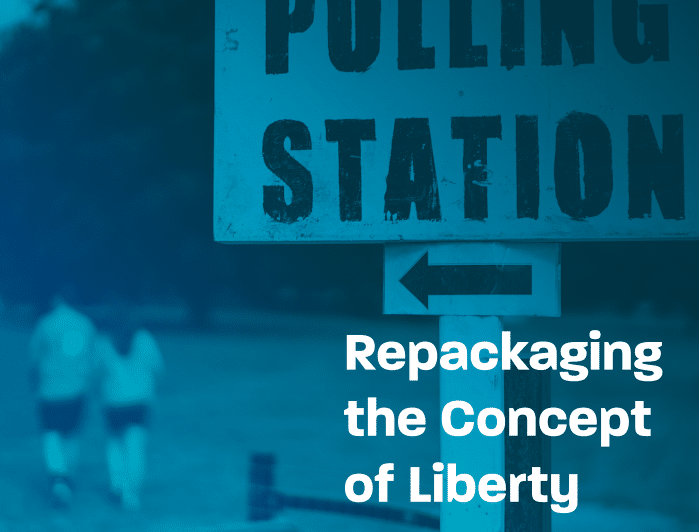Repackaging the Concept of Liberty
Liberalism is not dead – it is merely at a crossroads where its future depends on its ability to reconnect with the electorate.

Liberalism is not dead – it is merely at a crossroads where its future depends on its ability to reconnect with the electorate.

We must acknowledge that liberalism has become disconnected from ordinary people and their problems. Moreover, it has failed to adapt to the challenges of the modern era. Recent debates about vaccination, freedom of speech or liberal economic values show that the idea of personal freedom has been co-opted by far-right populist politics worldwide.
However, liberalism is not dead – it is merely at a crossroads where its future depends on its ability to reconnect with the electorate. This reconnection requires a profound shift in how the ideals of liberty are communicated, packaged, and practised.
The principles of freedom must be translated into benefits that resonate with people’s everyday lives. It is not enough to champion liberty as an ideal; it must be demonstrated as a practical force that improves the quality of life, safeguards individual rights, and promotes personal and societal progress.
The task is immense, but the stakes are high. As history has shown, the concept of liberty has the power to unite and inspire. Liberal leaders and thinkers must now adapt this timeless ideal to the needs of the twenty-first century and present it as a viable, vibrant, and inclusive path forward.
‘There are no ‘stupid’ voters or people who willingly vote against their own interests. If individual decisions appear politically inexplicable, we must examine their underlying causes and then draw our conclusions. We must also assess why the political messages we take for granted have failed to reach voters and whether other political forces have convinced people that they represent these values better than liberals do.’
Zoltán Kész is a former member of the Hungarian Parliament. Before he entered politics, he co-founded the Hungarian Free Market Foundation. In 2015, he ran in a by-election as an independent and defeated the Fidesz candidate, thus depriving Hungarian Prime Minister Viktor Orbán of his supermajority for the next three years. After his years in Parliament, he worked for think tanks as a political consultant. He is now the Government Affairs Manager at the Consumer Choice Center.